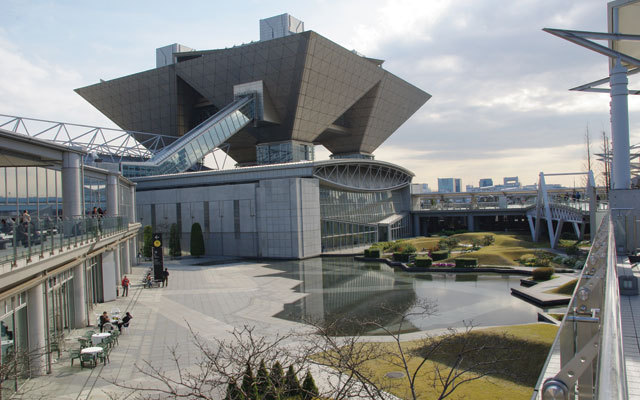The 2020 Olympic Games hardware boost will make Tokyo’s business event stakeholders big winners when show is over
With three years to go until the world’s largest sporting jamboree arrives in Tokyo, the city is making plans to ensure the 2020 Olympic Games is an efficient, attractive and unforgettable event. And business and association event stakeholders are delighted at the enhancements that are being planned as they know that once the show is over, they will be in prime position to take advantage.

“We believe the Games are going to attract a lot of attention for Tokyo as a destination for business and association events, with organisations that have never previously considered this city for (such activities) now looking at it much more closely,” said Etsuko Kawasaki, executive director of the Japan Convention Bureau, the division of the Japan National Tourism Organisation (JNTO) tasked with developing the MICE sector.
To take advantage of this new inquisitiveness about Tokyo as a MICE destination, Kawasaki’s department will roll out a multimedia campaign this year to raise the city’s profile.
Among the new sporting facilities that are to be constructed, Kawasaki pointed out a number are being designed to have dual uses after the Games, such as the 15,000-seat Ariake Arena, where the volleyball competition will be held, and the new gymnastics stadium, also in Tokyo’s Ariake district, which will have seating for 12,000 spectators.
In a bid to improve accessibility, the Japanese government will enlarge Haneda and Narita airports, adding runways at both and lifting annual arrival and departure slots by 79,000 flights a year by 2020. The transport ministry is also looking into ways to speed up immigration procedures.
Within Tokyo, a state-of-the-art terminal for long-distance buses opened in Shinjuku in April 2016, while plans are also afoot for a new cruise ship terminal building on Tokyo Bay.
The operator of the monorail that presently links Haneda airport with Hamamatsucho Station has announced that it will extend the line all the way to Tokyo Station, further smoothing new arrivals’ journeys.
“The national government is also extending support to local governments in the region for the construction of new convention facilities and that is a very helpful policy that will have a long-lasting impact on the sector,” said Kawasaki.
JNTO is anticipating more business and association events linked to sporting themes as 2020 approaches.
An early promotion drive began at the Rio de Janeiro Olympic Games in summer 2016, with Japan opening an online media centre providing easy access to detailed information on options in Tokyo over the next four years.
These broader developments mesh with a number of MICE-specific measures, according to JNTO, such as the opening in early 2020 of a new 20,000m2 facility alongside the existing Pacifico Yokohama convention centre.
Similarly, the Japan Tourism Agency has started accepting applications for companies seeking financial support to use some of the city’s unique venues for events. One of the locations being put forward under the programme is the Geihinkan State Guest House, which was until recently only open to the public on a limited number of days each year. Now, the venue can be used for private events, giving more people access to a national treasure.
That’s exactly the sort of thing that would appeal to Lucky Morimoto’s clients, he said.
“Many of our clients do not want a generic location for their gala dinners or major events; they want something that is unique, traditionally Japanese and able to cater to up to 1,000 people,” said Morimoto, president of Tokyo-based Event Services, Inc.
“Tokyo lacks something like that at the moment and I believe that if such a facility was built then it would be in great demand.”
Morimoto believes that the new-found focus on Tokyo means destination management companies will “need to elevate their standards of service and their offerings”.
James Kent, sales and marketing manager for Tokyo-based The J Team DMC Co., also called for venues that have previously been declared off-limits to be made accessible.
“I’m talking about temples, parks, special properties that today say they are not interested in hosting events but need to realise that they have a very important role to play for the city,” he told TTGassociations.
Unable to find a sufficiently large gala dinner venue for a recent group, for example, Kent’s company turned to an exhibition hall at the Tokyo Big Sight convention centre. Management of the venue had never previously considered it for such an event and it “was like watching a light bulb go on when they realised what was possible,” Kent added.
Another legacy that Kent hopes the industry gains from the spotlight turning to Tokyo in 2020 will be that more destination management firms attract an influx of young people into their ranks. Too often, he said, event companies take on older workers seeking a “second life” job after they retire from another firm.
“I hope we will have people looking at joining the business and looking at what they can achieve over the next 20 years, rather than the five years until they finally stop working,” he said. “That would give the business a more sustainable boost.”











